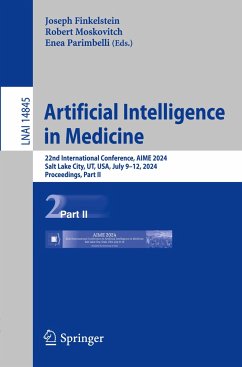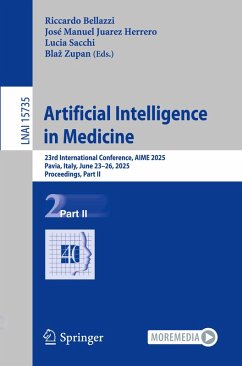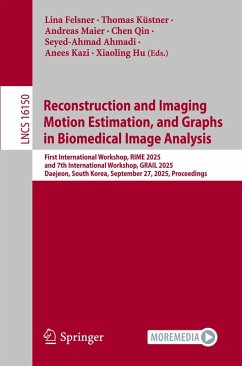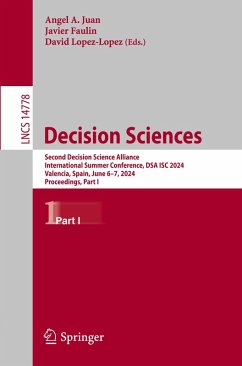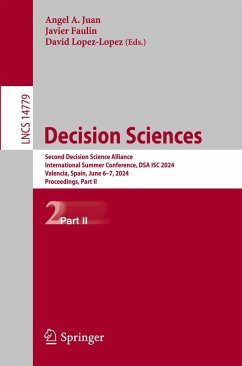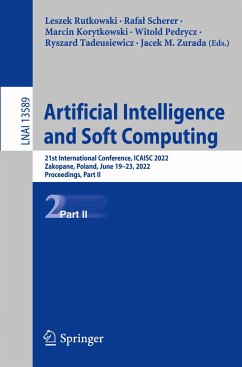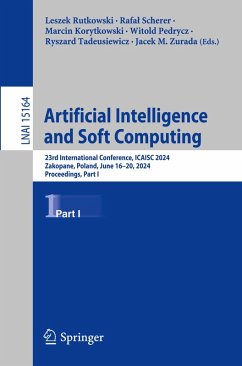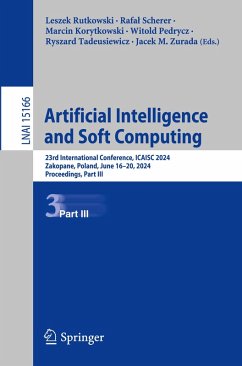
Artificial Intelligence in Medicine
22nd International Conference, AIME 2024, Salt Lake City, UT, USA, July 9-12, 2024, Proceedings, Part I
Herausgegeben: Finkelstein, Joseph; Moskovitch, Robert; Parimbelli, Enea

PAYBACK Punkte
25 °P sammeln!
This two-volume set LNAI 14844-14845 constitutes the refereed proceedings of the 22nd International Conference on Artificial Intelligence in Medicine, AIME 2024, held in Salt Lake City, UT, USA, during July 9-12, 2024.The 54 full papers and 22 short papers presented in the book were carefully reviewed and selected from 335 submissions.The papers are grouped in the following topical sections:Part I: Predictive modelling and disease risk prediction; natural language processing; bioinformatics and omics; and wearable devices, sensors, and robotics.Part II: Medical imaging analysis; data integrati...
This two-volume set LNAI 14844-14845 constitutes the refereed proceedings of the 22nd International Conference on Artificial Intelligence in Medicine, AIME 2024, held in Salt Lake City, UT, USA, during July 9-12, 2024.
The 54 full papers and 22 short papers presented in the book were carefully reviewed and selected from 335 submissions.
The papers are grouped in the following topical sections:
Part I: Predictive modelling and disease risk prediction; natural language processing; bioinformatics and omics; and wearable devices, sensors, and robotics.
Part II: Medical imaging analysis; data integration and multimodal analysis; and explainable AI.
The 54 full papers and 22 short papers presented in the book were carefully reviewed and selected from 335 submissions.
The papers are grouped in the following topical sections:
Part I: Predictive modelling and disease risk prediction; natural language processing; bioinformatics and omics; and wearable devices, sensors, and robotics.
Part II: Medical imaging analysis; data integration and multimodal analysis; and explainable AI.





